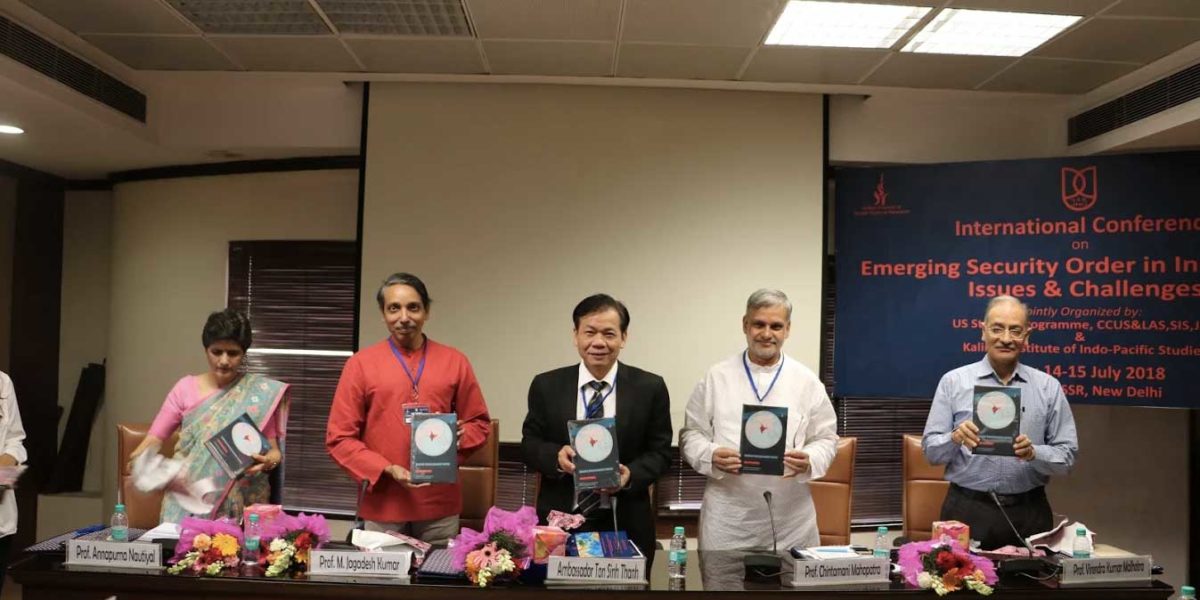
The US Studies Program of Jawaharlal Nehru University and Kalinga Institute of Indo-Pacific Studies (Bhubaneswar) organized a two-day ICSSR-sponsored International Conference on “Emerging Security Order in Indo-Pacific: Issues and Challenges” at the Indian Council of Social Science Research, New Delhi.
- Three Vice Chancellors, Ambassador of Vietnam, Deputy Chief of Mission of Indonesia, three former Indian diplomats, think tank specialists, senior academics, research scholars and graduate students from various parts of the country and abroad deliberated upon the concept of Indo-Pacific, Great Power relations, security dynamics, economic potentials and disruptive forces, such as terrorist networks, pirates, environmental polluters and drugs traffickers.
- Both the Vietnamese and Indonesian diplomats highly appreciated the concept of Indo-Pacific recently espoused by Honorable Prime Minister Narendra Modi at Shangri-La Dialogue Forum in Singapore.
- The convener of the conference, Prof. Chintamani Mahapatra, drew attention to the fact that both China and the United States openly endorsed the views expressed by Prime Minister Modi on the need for an open and inclusive Indo-Pacific.
- The co-convener, Dr. Netajee Abhinandan, highlighted the need for hearing the academic voices from the periphery, and not just Delhi-centric discourses, on matters related to the country’s foreign and national security policies.
- There was a consensus that India must give directions and provide low key leadership to maintain peace and stability because the present scenario is marked by “cold confrontation” between two dominant powers, such as the US and China and majority of the countries in the Indo-Pacific can easily find India as a more acceptable leader than the rival powers.
- India was a leader of the developing world when there was superpower cold war. India provided an alternative view of world politics. Currently, Sino-US “cold confrontation” in the Indo-Pacific demands a similar role by India. India’s role will not be hegemonic and India’s call for an inclusive Indo-Pacific would be more acceptable to nations, small and big, rich and poor, powerful and weak in this region.
EVENT INFO :
- Start Date:July 14, 2018
- Start Time:15:30
- End Date:July 15, 2018
- End Time:20:30
- Number of Participants:200
- Location:JNU, Delhi, India

